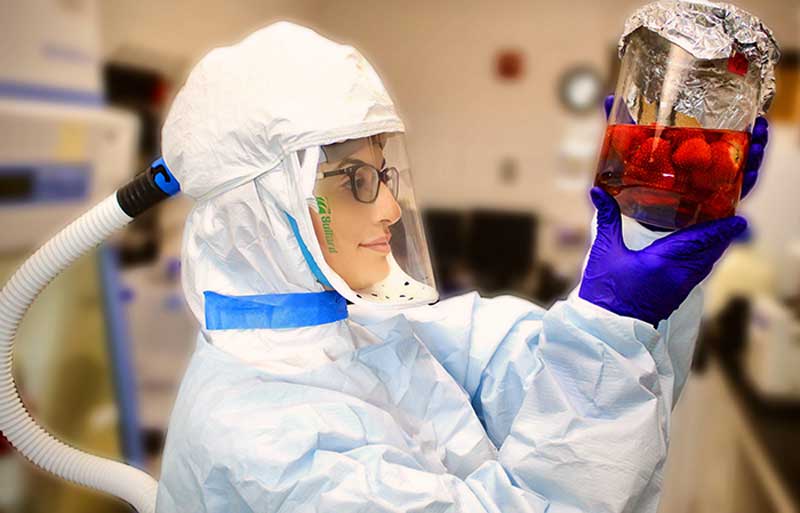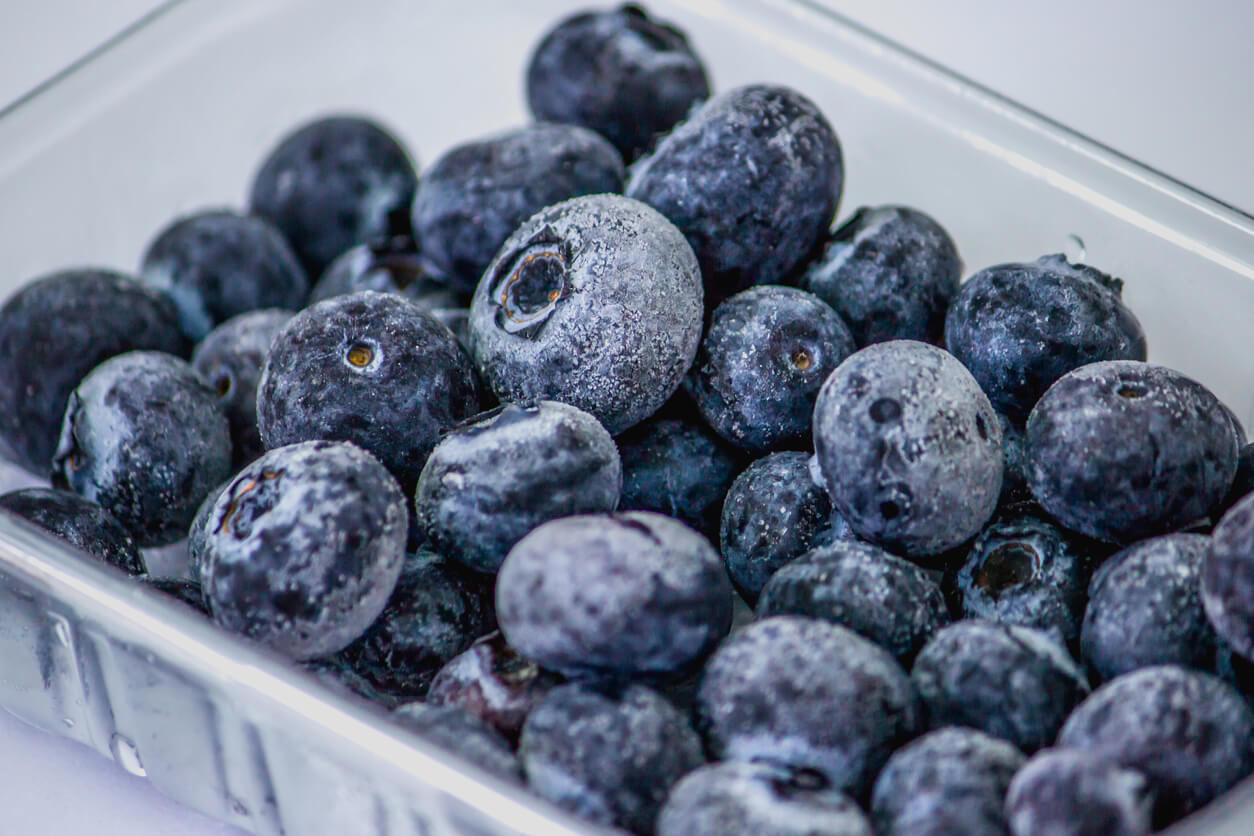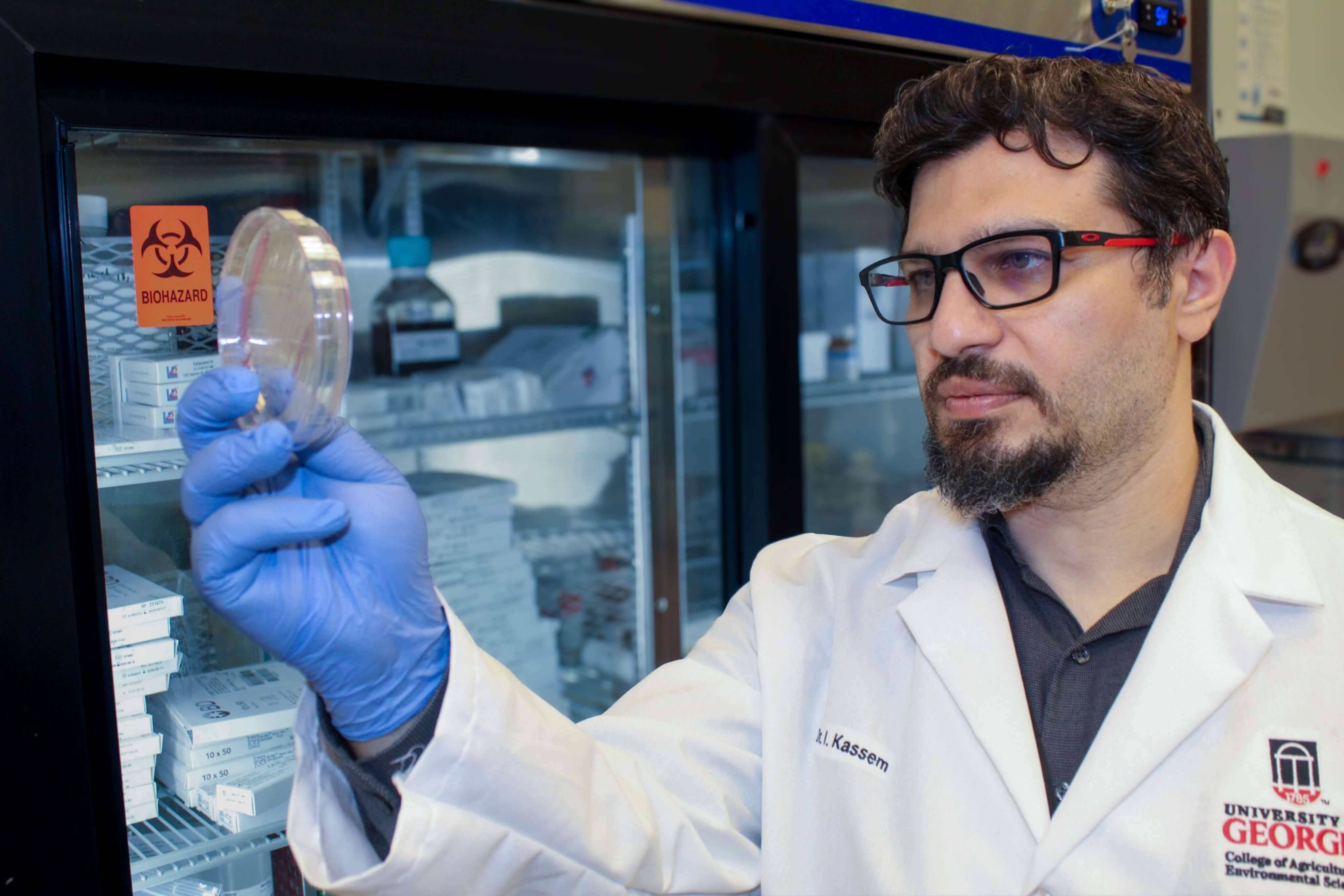
At the outset of the COVID-19 pandemic, fears were rampant as researchers worldwide rushed to learn more about modes of transmission for the virus.
One concern was the possibility of foodborne transmission of the virus. While the U.S. Centers for Disease Control and Prevention has since reported that there is no evidence to support transmission of SARS-CoV-2 associated with food, concern over persistence of the virus on food prompted a study recently published in the journal Food Microbiology. University of Georgia food scientists began the study in 2021 to establish a preemptive method to measure the virus on foods and to determine whether the virus can persist on fresh or frozen berries.
Malak Esseili, assistant professor at the Center for Food Safety in the College of Agricultural and Environmental Sciences, said the research team chose to study berries because they are known as a “global vehicles” for the transmission of other foodborne viruses, such as norovirus.
“The takeaway is that, if people are concerned about the virus, washing fruits or vegetables can remove 90% of the virus,” said Esseili. “One concern was that the virus was found to be stable on frozen berries and thus can be shipped from country to country.”
According to study results, SARS-CoV-2 experimentally introduced onto berries remained infectious on frozen berries for at least a month, while refrigeration at 39 degrees Fahrenheit showed 90% reduction in SARS-CoV-2 infectivity over the course of three days.

However, washing berries in water before freezing was shown to reduce the infectivity of SARS-CoV-2 by 90%, emphasizing the importance of food safety measures in preventing initial contamination, study results show.
Esseili said, “We still think that the respiratory pathway is a much more significant mode of transmission, but this is something to keep in mind and measures should be in place to eliminate that possibility.”
Commercially prepared frozen berries could be of concern because they are typically not cooked before consumption.
“This is important when the food is served to an already-at risk population, such as the elderly, immunocompromised, hospitalized individuals and people with underlying medical conditions,” Esseili said.
For individuals purchasing fresh fruit, proper washing before eating, refrigerating or freezing can significantly reduce risks, she added.
“This is not something to worry about with fresh berries, you can just wash and eat or store them in your refrigerator. It is only frozen fruits that would be something of concern if there is a contamination with the virus,” Esseili concluded. “Also, this is something for the food industry to think about from a biosecurity or food defense perspective. If companies are following food sanitation and hygiene protocols and eliminating sick workers from the production line, the risks will be greatly minimized.”






